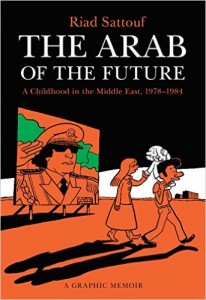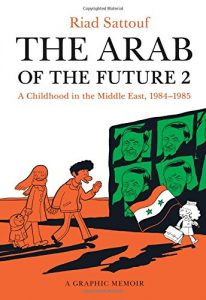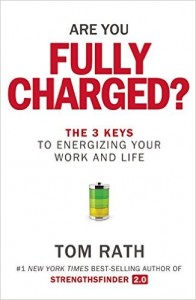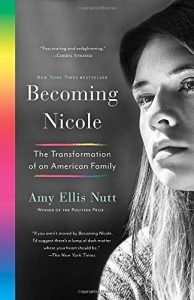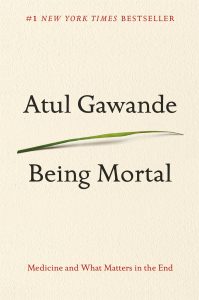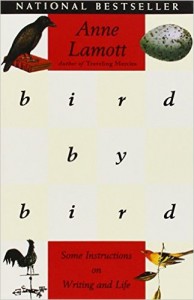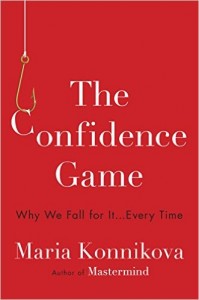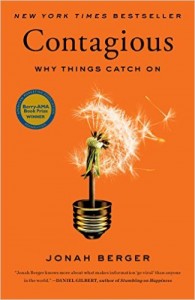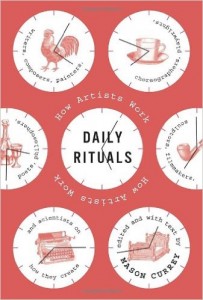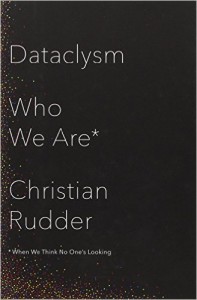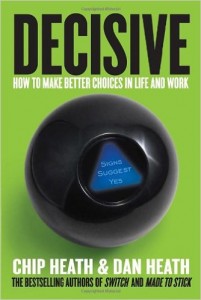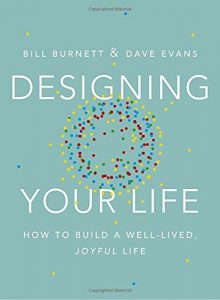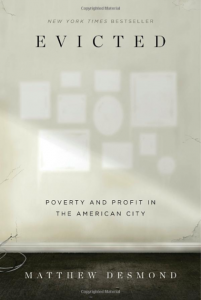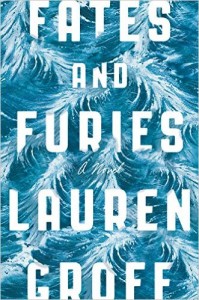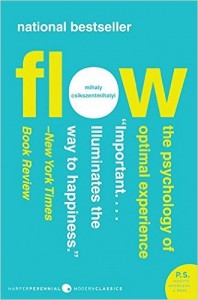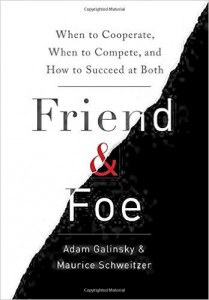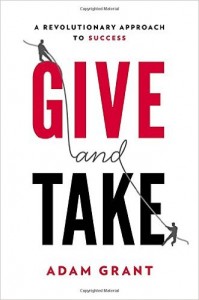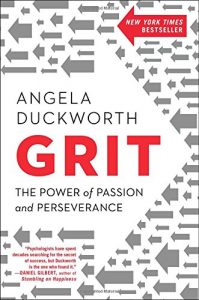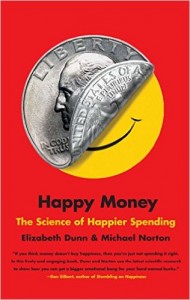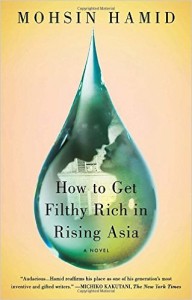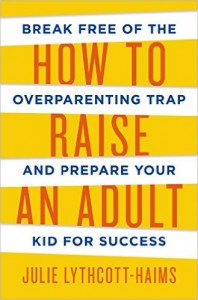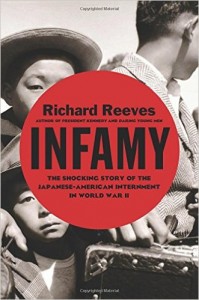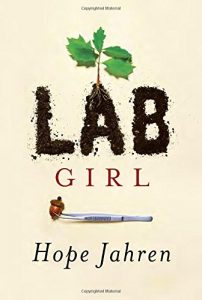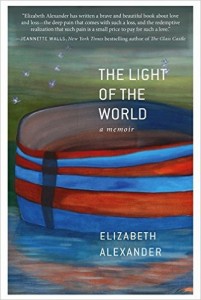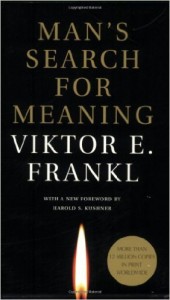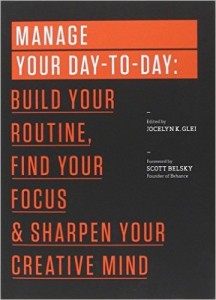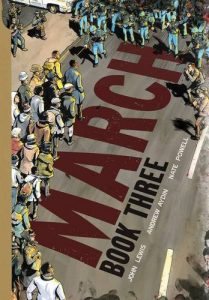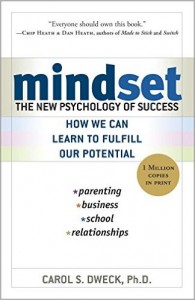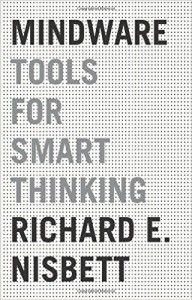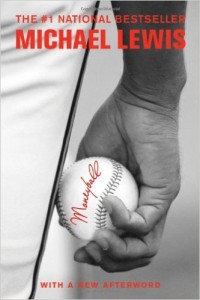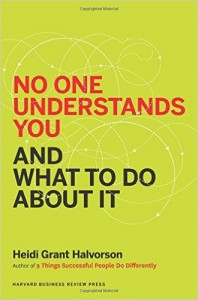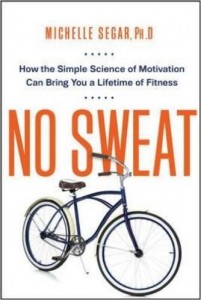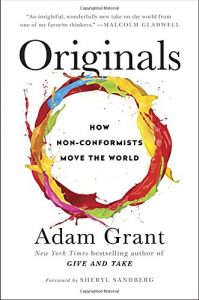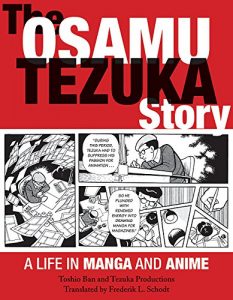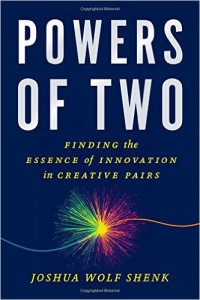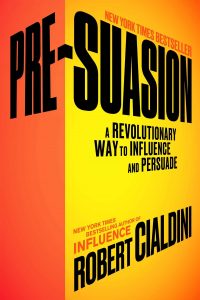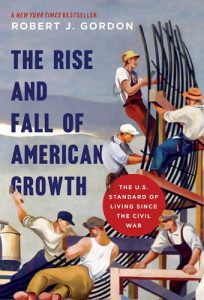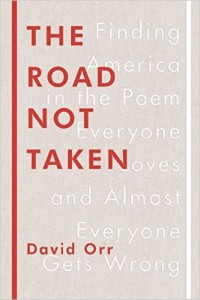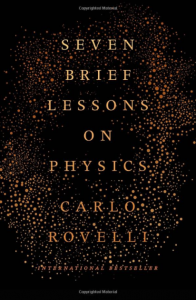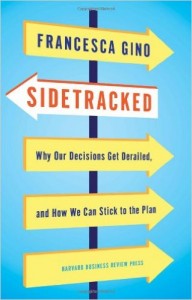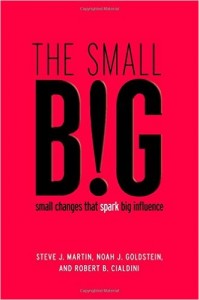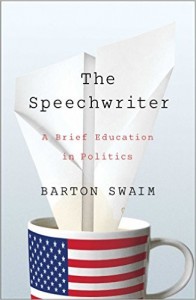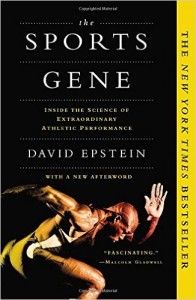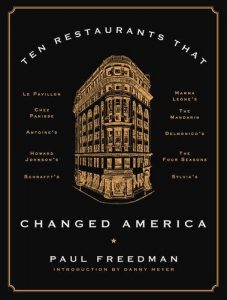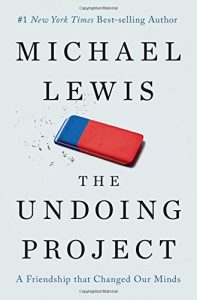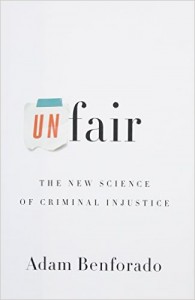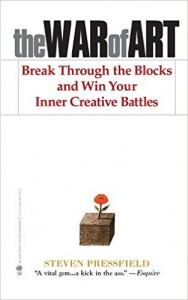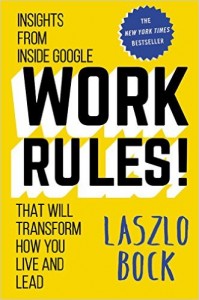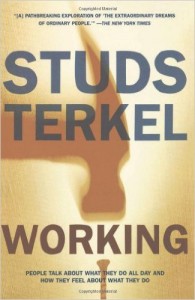Recommended Books
-
The Arab of the Future: 1978 to 1984
by Riad Sattouf
-
The Arab of the Future 2
by Riad Sattouf
-
Becoming Nicole: The Transformation of an American Family
by Amy Ellis Nutt
-
Being Mortal
by Atul Gawande
-
Bird by Bird: Some Instructions on Writing and Life
by Anne Lamott
-
The Confidence Game: Why We Fall For It Every Time
by Maria Konnikova
-
Contagious: Why Things Catch On
by Jonah Berger
-
Daily Rituals: How Artists Work
by Mason Currey
-
Dataclysm: Who We Are (When We Think No One’s Looking)
by Christian Rudder
-
Decisive: How to Make Better Choices in Life and Work
by Chip Heath and Dan Heath
-
Designing Your Life: How to Build a Well-Lived, Joyful Life
by Bill Burnett & Dave Evans
-
Evicted: Poverty and Profit in the American City
by Matthew Desmond
-
Fates and Furies
by Lauren Groff
-
Flow: The Psychology of Optimal Experiences
by Mihaly Csikszentmihalyi
-
Friend & Foe: When to Cooperate, When to Compete, and How to Succeed at Both
by Adam Galinsky, Maurice Schweitzer
-
Give and Take: A Revolutionary Approach to Success
by Adam Grant
-
Grit: The Power of Passion and Perseverance
by Angela Duckworth
-
Happy Money: The Science of Smarter Spending
by Elizabeth Dunn and Michael Norton
-
How To Get Filthy Rich in Rising Asia
by Mohsin Hamid
-
How to Raise an Adult: Break Free of the Overparenting Trap and Prepare Your Kid for Success
by Julie Lythcott-Haims
-
Lab Girl
by Hope Jahren
-
The Light of the World: A Memoir
by Elizabeth Alexander
-
Man’s Search for Meaning
by Viktor Frankl
-
March: Book Three
by John Lewis, Andrew Aydin, and Nate Powell
-
Mindset: The New Psychology of Success
by Carol Dweck
-
Mindware: Tools for Smart Thinking
by Richard E. Nisbett
-
Moneyball: The Art of Winning an Unfair Game
by Michael Lewis
-
No One Understands You: And What To Do About It
by Heidi Grant Halvorson
-
No Sweat: How the Simple Science of Motivation Can Bring You a Lifetime of Fitness
by Michelle Segar Segar
-
Originals: How Non-Conformists Move the World
by Adam Grant
-
The Osamu Tezuka Story: A Life in Manga and Anime
by Toshio Ban
-
Powers of Two: Finding the Essence of Innovation in Creative Pairs
by Joshua Wolf Shenk
-
Pre-Suasion: A Revolutionary Way to Influence and Persuade
by Robert Cialdini
-
The Rise and Fall of American Growth: The U.S. Standard of Living Since the Civil War
by Robert J. Gordon
-
The Road Not Taken: Finding America in the Poem Everyone Loves and Almost Everyone Gets Wrong
by David Orr
-
Seven Brief Lessons on Physics
by Carlo Rovelli
-
The Small BIG: Small Changes That Spark Big Influence
by S. Martin, N. Goldstein, and R. Cialdini
-
The Speechwriter: A Brief Education in Politics
by Barton Swaim
-
Ten Restaurants That Changed America
by Paul Freedman
-
The Undoing Project: A Friendship That Changed Our Minds
by Michael Lewis
-
Unfair: The New Science of Criminal Injustice
by Adam Benforado
-
The War of Art: Break Through the Blocks and Win Your Creative Battles
by Stephen Pressfield
In addition to this resource, I’ve also curated a list here.
- The Arab of the Future: 1978 to 1984 by Riad Sattouf
Young Riad has a French mother, a Syrian father, and a head of shockingly blond hair. In this graphic novel he tells the story of his early childhood. Fans of Persepolis will love this one. - The Arab of the Future 2
by Riad Sattouf
Another graphic novel, this one the latest edition of the moving and extremely funny story of a boy whose childhood finds him hopscotching from France to Libya to Syria.
(Buy it at Amazon, BN.com, Indiebound) - Are You Fully Charged?: The 3 Keys to Energizing Your Work and Life by Tom Rath
Rath’s books — which include StrengthsFinder 2.0 and Eat, Move, Sleep — have spent 300 (!) weeks on the Wall Street Journal bestseller lists. This one is arguably his best. - Becoming Nicole: The Transformation of an American Family (paperback)
by Amy Ellis Nutt
A middle-class couple in Maine adopts two identical twin boys. Early in their lives, one boy insists he’s a girl. This remarkable book traces the family’s subsequent journey. An urgent and beautiful read.
(Buy it at Amazon, BN.com, Indiebound) - Being Mortal: Medicine and What Matters in the End (paperback)
by Atul Gawande
Although this book is a clear-eyed and often uncomfortable look at end-of-life issues, it is also an uplifting view of what makes us human.
(Buy it at Amazon, BN.com, Indiebound) - Bird by Bird: Some Instructions on Writing and Life by Anne Lamott
The best writing advice in the history of humankind came from Lamott’s father, who offered the following counsel to her 10-year-old brother as he struggled to write a book report about birds: “Bird by bird, buddy. Just take it bird by bird.” - The Confidence Game: Why We Fall For It Every Time by Maria Konnikova
In this elegantly written and deeply researched work, Maria uses confidence games as a window to understanding human behavior and cognition — especially our hard-wired desire to believe and our tendency to confirm our existing beliefs and to discard contrary evidence. - Contagious: Why Things Catch On by Jonah Berger
- Daily Rituals: How Artists Work by Mason Currey
How did Franz Kafka, Henri Matisse, Toni Morrison, Ben Franklin and more than 150 other amazing creators get stuff done? This book reveals who’s a lark, who’s a night owl, and who just needs a good stiff drink. - Dataclysm: Who We Are (When We Think No One’s Looking) by Christian Rudder
One of the founders of dating site OKCupid mines data from his site and many others to offer some sharp insights into our views on beauty, love, race, politics, and other subjects on which our spoken views often differ from our actions. - Decisive: How to Make Better Choices in Life and Work by Chip Heath and Dan Heath
- Designing Your Life: How to Build a Well-Lived, Joyful Life
by Bill Burnett & Dave Evans
Two Stanford professors show how to apply design thinking to one of your most important projects: your life. Also check out this Pinkcast with the authors.
(Buy it at Amazon, BN.com, Indiebound) - Evicted: Poverty and Profit in the American City
by Matthew Desmond
A sociologist’s detailed look at life in low-income housing and trailer parks; one of the most powerful books I’ve read in years.
(Buy it at Amazon, BN.com, IndieBound) - Fates and Furies by Lauren Groff
Whenever a book gets as much acclaim as this one — glowing reviews, a National Book Award nomination, even a Presidential endorsement — I become a bit skeptical. But this fast-paced literary novel, which tells the story of a marriage from two contrasting perspectives, deserves every plaudit. It’s gobsmackingly good. - Flow: The Psychology of Optimal Experiences by Mihaly Csikszentmihalyi
- Friend & Foe: When to Cooperate, When to Compete, and How to Succeed at Both by Adam Galinsky, Maurice Schweitzer
You might remember this one from the 4Q4 this duo did for this newsletter. This is a smart, practical book that lives up to its promise to help you become “a better friend and more formidable foe.” - Give and Take: A Revolutionary Approach to Success by Adam Grant
- Grit: The Power of Passion and Perseverance
by Angela Duckworth
Passion and persistence toward long-term goals outweighs talent in circumstances ranging from spelling bees to West Point.
(Buy it at Amazon, BN.com, Indiebound) - Happy Money: The Science of Smarter Spending by Elizabeth Dunn and Michael Norton
- How To Get Filthy Rich in Rising Asia by Mohsin Hamid
This one’s a novel, but in the guise of a self-help book. It tells the story of one man — a poor child who becomes a bottled water entrepreneur in an unnamed country that resembles Pakistan — from his youth until his old age. Maybe I’m having a silent mid-life crisis, but I still can’t get this book out of my head. - How to Raise an Adult: Break Free of the Overparenting Trap and Prepare Your Kid for Success by Julie Lythcott-Haims
The former Dean of Freshmen at Stanford University trenchantly shows how helicopter parents and Tiger Moms are causing much more harm than good. Then she offers an array of tips and strategies for doing better by our kids. - Infamy: The Shocking Story of Japanese American Internment in World War II by Richard Reeves
Shortly after the Japanese bombed Pearl Harbor 74 years ago, the U.S. government rounded up more than 100,000 Japanese-Americans and incarcerated them at “relocation centers.” This remains one of the most disgraceful episodes in American history. I read this back in April, but Reeves’s elegantly told tale has new relevance today as some of the very same xenophobia and racism rear their heads again. - Lab Girl
by Hope Jahren
The riveting memoir of a geobiologist (no, really) that is a funny and moving meditation on science, commitment, and love.
(Buy it at Amazon, BN.com, Indiebound) - The Light of the World: A Memoir by Elizabeth Alexander
In 1996, Alexander, a well-known poet, met Ficre Ghebreyesus, a chef originally from Eritrea. Within a few weeks, they decided to get married. Within three years, they had two sons. Then in 2012, Ficre dropped dead of a heart attack. Alexander’s account of her grief is riveting. I read nearly the entire book in one sitting. - Man’s Search for Meaning by Viktor Frankl
- Manage Your Day-to-Day: Build Your Routine, Find Your Focus, and Sharpen Your Creative Brain, by 99u
The book was worth the quick read, especially for these 4 insights and suggestions:- “The single most important change you can make in your working habits is to switch to creative work first, reactive work second. This means blocking off a large chunk of time every day for creative work on your own priorities, with the phone and e-mail off.”
- “Book time on your calendar for uninterrupted, focused work—and respect those blocks of time as you would any client meeting.”
- “It’s better to disappoint a few people over small things, than to surrender your dreams for an empty inbox. Otherwise you’re sacrificing your potential for the illusion of professionalism.”
- “What I do every day matters more than what I do once in a while.”
- March: Book Three
by John Lewis, Andrew Aydin, and Nate Powell
A graphic novel (the third of a trilogy) from the incredible John Lewis. This volume covers the U.S. civil rights movement from 1963 to 1965 in compelling and cinematic style. A great read for young people — and for the rest of us.
(Buy it at Amazon, BN.com, Indiebound) - Mindset: The New Psychology of Success by Carol Dweck
- Mindware: Tools for Smart Thinking by Richard E. Nisbett
- Moneyball: The Art of Winning an Unfair Game by Michael Lewis
- No One Understands You: And What To Do About It by Heidi Grant Halvorson
It’s a sad truth about human perception: Other people don’t see you objectively. Nor do they see you as you see yourself. Columbia social psychologist Halvorson tells us how to respond. - No Sweat: How the Simple Science of Motivation Can Bring You a Lifetime of Fitness by Michelle Segar
Segar, head of the University of Michigan’s Sport, Health, and Activity Research and Policy Center, studies the science of healthy behavior. Her book’s key point: Start thinking of exercise less as a chore and more as a gift. - Originals: How Non-Conformists Move the World
by Adam Grant
Lots of smart science and savvy advice on how to stand up and stand out from the dynamic Wharton professor.
(Buy it at Amazon, BN.com, Indiebound) - The Osamu Tezuka Story: A Life in Manga and Anime
by Toshio Ban
Tezuka is probably the most important creative force that Americans have never heard of. In the world of Japanese manga and anime, he’s a combination of Walt Disney, Thomas Edison, and Elvis.
(Buy it at Amazon, BN.com, Indiebound) - Powers of Two: Finding the Essence of Innovation in Creative Pairs by Joshua Wolf Shenk
Creative breakthroughs aren’t a solo endeavor, says Shenk. Like the animals boarding Noah’s Ark, creativity is likely to come in pairs. Lennon and McCartney. Jobs and Wozniak. Marie and Pierre Curie. The Coen brothers. Find a partner and check out this fascinating book. - Pre-Suasion: A Revolutionary Way to Influence and Persuade
by Robert Cialdini
From the amazing Robert Cialdini comes a powerful sequel of sorts to his legendary book, Influence.
(Buy it at Amazon, BN.com, Indiebound) - The Rise and Fall of American Growth: The U.S. Standard of Living Since the Civil War
by Robert J. Gordon
This 700-page tome isn’t exactly light reading, but it tells the remarkable story of how a batch of innovations from 1870 to 1970 transformed American life — and why today’s innovations won’t give the economy the same kind of lift.
(Buy it at Amazon, BN.com, Indiebound) - The Road Not Taken: Finding America in the Poem Everyone Loves and Almost Everyone Gets Wrong by David Orr
You wouldn’t think an book-length dissection of Robert Frost’s “two roads diverged in a yellow wood” poem would be a great read. But Orr’s book is a gem — wise, funny, and insightful. - Seven Brief Lessons on Physics
by Carlo Rovelli
A slim (81-page) book that helped me (almost) understand relativity theory and black holes.
(Buy it at Amazon, BN.com, Indiebound) - Sidetracked: Why Our Decisions Get Derailed and How We Can Stick to the Plan by Francesca Gino
- The Small BIG: Small Changes That Spark Big Influence by S. Martin, N. Goldstein, and R. Cialdini
The great Robert Cialdini teams with two other scholars to review the latest research in the science of persuasion and offer practical ways to put that research to use. This might be the first book I’ve read in which the passages I underlined outnumbered the passages I didn’t. - The Speechwriter: A Brief Education in Politics by Barton Swaim
A regular guy leaves academia to become a speechwriter for the Governor of South Carolina. Complications ensue. This chronicle — at once hilarious and sad — is the best book on politics I’ve read in years. - The Sports Gene: Inside the Science of Extraordinary Athletic Performance by David Epstein
I’m a big believer in Carol Dweck’s research on mindsets — as well as in the importance of grit and deliberate practice. But this book was a smart and bracing reminder that — sorry, folks — some talent is innate. (It also helped explain why I’m such a pathetically slow runner.) - Ten Restaurants That Changed America
by Paul Freedman
A social history of America told through iconic restaurants like Sylvia’s, Chez Panisse, and Howard Johnson.
(Buy it at Amazon, BN.com, Indiebound) - The Undoing Project: A Friendship That Changed Our Minds
by Michael Lewis
My dream in life: To be able to write as well as Michael Lewis and to think as well as Daniel Kahneman and Amos Tversky.
(Buy it at Amazon, BN.com, Indiebound) - Unfair: The New Science of Criminal Injustice by Adam Benforado
Law professor Benforado argues that our legal system is built on assumptions about human behavior that just aren’t true. Some examples: Eyewitness testimony is utterly unreliable, yet we use it to convict people. Human beings stink at detecting lies, yet jurors think they’re great at it. And, amazingly, false confessions are quite easy to produce. This book deserved way more attention than it received. - The War of Art: Break Through the Blocks and Win Your Creative Battles by Stephen Pressfield
Advice and butt-kicking for overcoming the nasty reality that the entire world is conspiring to prevent you from writing. - Work Rules: Insights From Inside Google That Will Transform How You Live and Lead by Laszlo Bock
Google’s head of People Operations reveals the secrets that made the company a talent powerhouse and that can help you radically think how you recruit, hire, challenge, nudge, and inspire employees. - Working: People Talk About What They Do All Day and How They Feel About It by Studs Terkel
